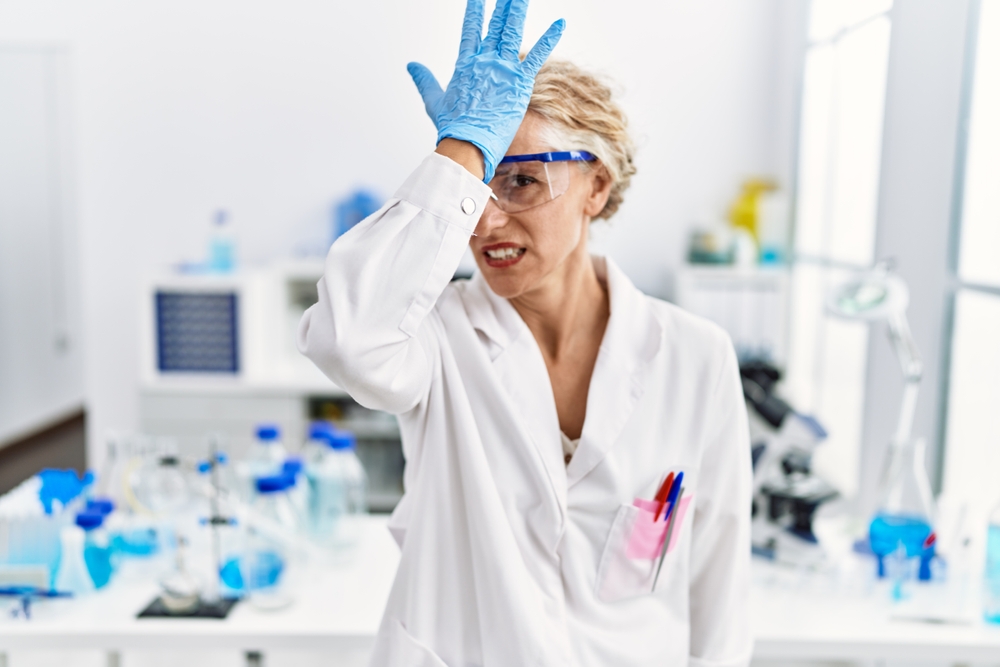Laboratory work is a critical component of our healthcare system. Medical tests, forensic examinations, and scientific experiments depend on precision and adherence to strict protocols. However, laboratory errors can still happen and potentially harm patients or undermine the outcomes of investigations. This is where a skilled medical malpractice lawyer can provide guidance. At Abrams Justice Trial Attorney, we understand the significance of accurate lab work and are prepared to help individuals hold the responsible parties accountable.
What Are Laboratory Errors
A laboratory error occurs whenever a procedural or technical lapse skews test outcomes, regardless of whether it happens in a clinical, forensic, or research setting. In Florida, labs are expected to follow clear regulations and quality-control measures under state law. For example, Florida Administrative Code sections such as Rule 59A-7 and Rule 64B-3 outline standards for laboratory licensing, testing protocols, and ongoing oversight. When facilities or their staff deviate from these requirements, the results can be inaccurate data, delayed reporting, or a compromised chain of custody for specimens.
Statistics show that laboratory mistakes remain an international concern. A peer-reviewed article in the Journal of Clinical Laboratory Analysis estimated that pre-analytical errors—problems occurring before tests are run—account for up to 70% of lab errors (Lippi et al., 2016). Even small mistakes, like confusing patient identification labels, can derail a diagnosis. According to one report cited by the Florida Department of Health, about 1% to 5% of results in clinical labs might contain inaccuracies, a seemingly small range that can still translate into thousands of flawed outcomes each year in a busy state like Florida. When these oversights harm an individual’s health or legal standing, a personal injury lawyer can investigate and determine if the lab or affiliated parties bear responsibility.
Common Types of Laboratory Errors in Florida
Despite Florida’s regulatory protections, certain factors can make labs more prone to mistakes. Below are some typical issues often seen in lab-related claims:
- Mislabeling or Incorrect Patient Identification
This often involves confusion or errors in labeling patient samples. A small misstep—like a name tag placed on the wrong container—can produce inaccurate readings. A top-rated Miami personal injury attorney can investigate how this mix-up took place and whether it was the direct cause of any subsequent harm.
- Cross-Contamination
Cross-contamination occurs when substances from one sample inadvertently mix with another. This often stems from unsterile equipment, poor handling procedures, or failure to follow appropriate safety protocols. The issue is especially concerning with blood tests or DNA analysis, where a seemingly minor mistake can alter results significantly.
- Equipment and Technology Malfunctions
Laboratories depend on devices such as centrifuges, spectrophotometers, and computers to provide data. If these machines malfunction due to design flaws, inadequate maintenance, or improper calibration, the resultant figures may be unreliable. Individuals who rely on these flawed results sometimes suffer significant injuries or losses. A personal injury lawyer can review such scenarios to determine liability.
- Reagent and Chemical Errors
Laboratories often utilize reagents or chemical substances with precise formulations. If reagents expire or become contaminated, they can invalidate an entire batch of tests. Patients or individuals affected might end up with medically inaccurate reports that compromise their well-being.
- Technical or Human Error in Procedures
Mistakes during the processing, handling, or analyzing phase can arise from distractions, fatigue, or lack of adequate oversight. A simple step overlooked—like not waiting long enough for a reaction to complete—can cascade into faulty conclusions.
- Documentation and Data Entry Mistakes
Even after obtaining results, missteps can occur during record-keeping or when data is keyed into a digital system. A single digit typed incorrectly may have far-reaching consequences, from prescribing the wrong medication to making flawed legal decisions based on erroneous lab data.
- Outdated Protocols and Lack of Training
Some laboratories use outdated protocols, or staff may lack training on the latest processes. This gap can lead to repeated mistakes that persist for months or years until someone identifies a pattern of inaccuracies.
- Inconsistent Handling of Temperature-Sensitive Materials
Certain tests—such as those involving blood samples or tissue biopsies—require strict temperature controls. If these guidelines are not maintained, the sample may degrade and produce useless or misleading results.
- Failure to Document Chain-of-Custody
In forensic and medical contexts, tracking a sample’s chain-of-custody is critical. Missing or incomplete records allow questions about who handled the sample, whether it was stored correctly, or if it was tampered with at any stage.
- Over-Reliance on Automated Systems
Automation has streamlined many lab processes, but staff should still confirm outputs and cross-check any anomalies. Failure to do so may leave undetected malfunctions or programming errors that produce systematically incorrect data.
- Inadequate Volume for Sample Analysis
Each test typically needs a certain amount of fluid or tissue to yield a reliable result. Using too little volume or failing to follow recommended collection guidelines can diminish the accuracy of the findings.
- Confusion Between Units of Measure
Some labs handle multiple measurement systems—metric, U.S. customary, or specialized scientific units. A mix-up in converting or reporting these can create a wide margin of error, potentially misleading healthcare providers and patients.
A widely referenced study in the Archives of Pathology & Laboratory Medicine found that serious diagnostic errors occur in about 1 in every 1,000 cases (Plebani, 2006). While the percentage might seem small, it can represent a significant number of incidents when considering the volume of tests processed every day in a region as populous as Miami-Dade County.
When an individual suffers physical harm, emotional distress, or financial difficulties stemming from such mistakes, the best personal injury attorney can scrutinize lab records, personnel logs, and maintenance documents. By identifying departures from the accepted standard of care, Florida law may allow for compensation for medical bills, income losses, and other damages associated with laboratory errors.
How These Errors Happen
Florida’s laboratories handle a high volume of patient tests every day, and several factors can contribute to mistakes in this busy environment. High workload and time pressures often drive staff to process numerous samples in a short span, increasing the likelihood of errors. Human factors such as fatigue, insufficient staffing, or limited supervision may also lead to lapses in attention and judgment. If machines are not regularly checked or calibrated, distorted readings can emerge.
In addition, labs without systematic quality control measures risk overlooking recurring mistakes, while a lack of ongoing training leaves personnel unaware of updated diagnostic methods or best practices. When errors occur under these circumstances, individuals might suffer injuries or financial setbacks. In such cases, a personal injury attorney can help determine whether the laboratory or its associated parties are legally liable for damages.
Possible Consequences of Laboratory Errors
The effects of laboratory mistakes range from minor complications to life-threatening situations. Delayed or incorrect diagnoses are among the most serious outcomes, as patients may be treated for illnesses they do not have or miss necessary care for existing conditions. Inaccurate results can further prompt physicians to recommend unnecessary treatments or surgeries, introducing avoidable risks.
Beyond medical harm, a flawed drug test might lead to job loss, while errors in DNA testing could wrongfully implicate someone in a crime, causing emotional and financial turmoil. Mistakes in forensic analysis can also compromise legal proceedings, resulting in unjust rulings and the potential for wrongful convictions. In the most severe scenarios, lab-related oversights might contribute to a person’s death if a critical condition remains undetected or if a hazardous intervention is administered based on a flawed test.
Individuals who suspect negligence in such circumstances often seek help from personal injury attorneys in Miami. If wrongdoing is identified, legal action may facilitate compensation for medical costs, lost wages, and other damages.
Eligibility to Pursue a Claim
Not every laboratory mishap leads to a valid personal injury claim. Establishing eligibility generally requires several factors:
- Proven Negligence
You must demonstrate the lab or its employees failed to meet a standard of care. For instance, if they failed to perform routine maintenance on a critical testing machine, that might constitute negligence.
- Direct Connection to Harm
A personal injury claim hinges on a direct link between the lab error and any resulting injuries or losses. If the inaccuracy did not contribute to harm, it may not be legally actionable.
- Verifiable Damages
Damages can include medical expenses, lost earnings, emotional distress, or other tangible and intangible losses. A medical malpractice lawyer can help identify which damages you may be entitled to pursue.
Meeting these criteria is often the first step in determining whether you should proceed with a claim. Once we confirm eligibility, our firm can move forward in seeking compensation for you.
Partner with Abrams Justice Trial Attorney for Your Legal Needs
When inaccurate lab work leads to a wrong diagnosis, unwarranted legal trouble, or significant financial setbacks, it is important to know that the law can offer avenues for redress, especially under Florida statutes and administrative codes (Rule 59A-7, 64B-3). If you suspect you have suffered losses due to lab mistakes, reach out to Abrams Justice Trial Attorney for guidance. Laboratory errors are still prevalent, and if they have affected you or a loved one, you deserve representation aimed at securing compensation for medical expenses, emotional distress, and lost wages—contact us today to see how a Miami personal injury attorney from our team can stand by your side.


